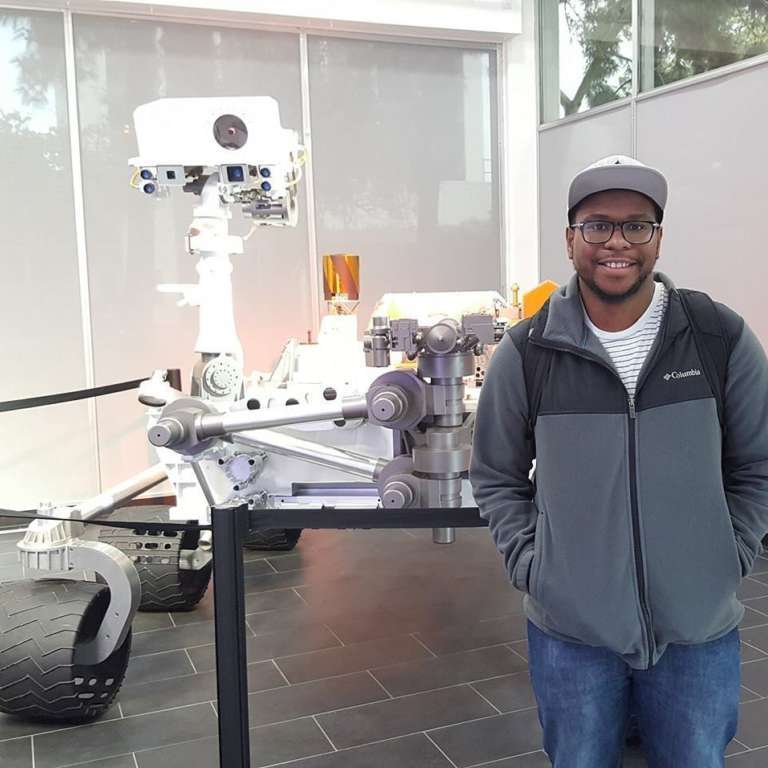
Darian Dixon
Darian is a recent graduate of Western Washington University’s Master of Science in geology program. During his time at WWU, Darian was an active member in the WWU Mars Science Group and an avid explorer of the red planet. His thesis research supported the multispectral capabilities of the Mastcam-Z instrument by exploring how the instrument would view the spectral signatures of sulfate minerals and of important rock units at the candidate landing sites for the Mars-2020 rover. Darian assisted with operations for the Curiosity rover, helping draft the command sequences used to operate the rover’s science equipment.
Darian is a staunch advocate for diversity in STEM. Outside of his research he gives outreach talks at middle schools, teaching young students about planetary science and encouraging the next generation, especially girls and underrepresented minority groups to take a strong interest in STEM. As an African-American from an impoverished city with a struggling public school system, his journey as a scientist has opened doors for Darian he never imagined possible as a child. He hopes he can convince the next generation that the same can be the case for them. Now done with his master’s he is looking forward to advancing his career as a planetary scientist and expanding his science outreach endeavors.
Like all planetary scientists, Darian does have many interests outside of his work. Darian is a huge sports buff and might be the most diehard Green Bay Packers and Milwaukee Bucks fan on Earth. In his free time he’s likely to be found watching sports, playing video games, or working on his garden. Darian always says that if he never became a planetary scientist he’d have become a botanist. He has a deep love for plants and cares for his home garden as if each flower, vegetable, and blade of grass were his own children.
Latest Articles
Mastcam-Z will help the Mars 2020 rover explore the surface of Mars. Dozens of amazing scientists and engineers from across the globe contribute to the development of Mastcam-Z. This year, the team photo was taken with our very own Mastcam-Z testbed unit.


 Explore Worlds
Explore Worlds Find Life
Find Life Defend Earth
Defend Earth


